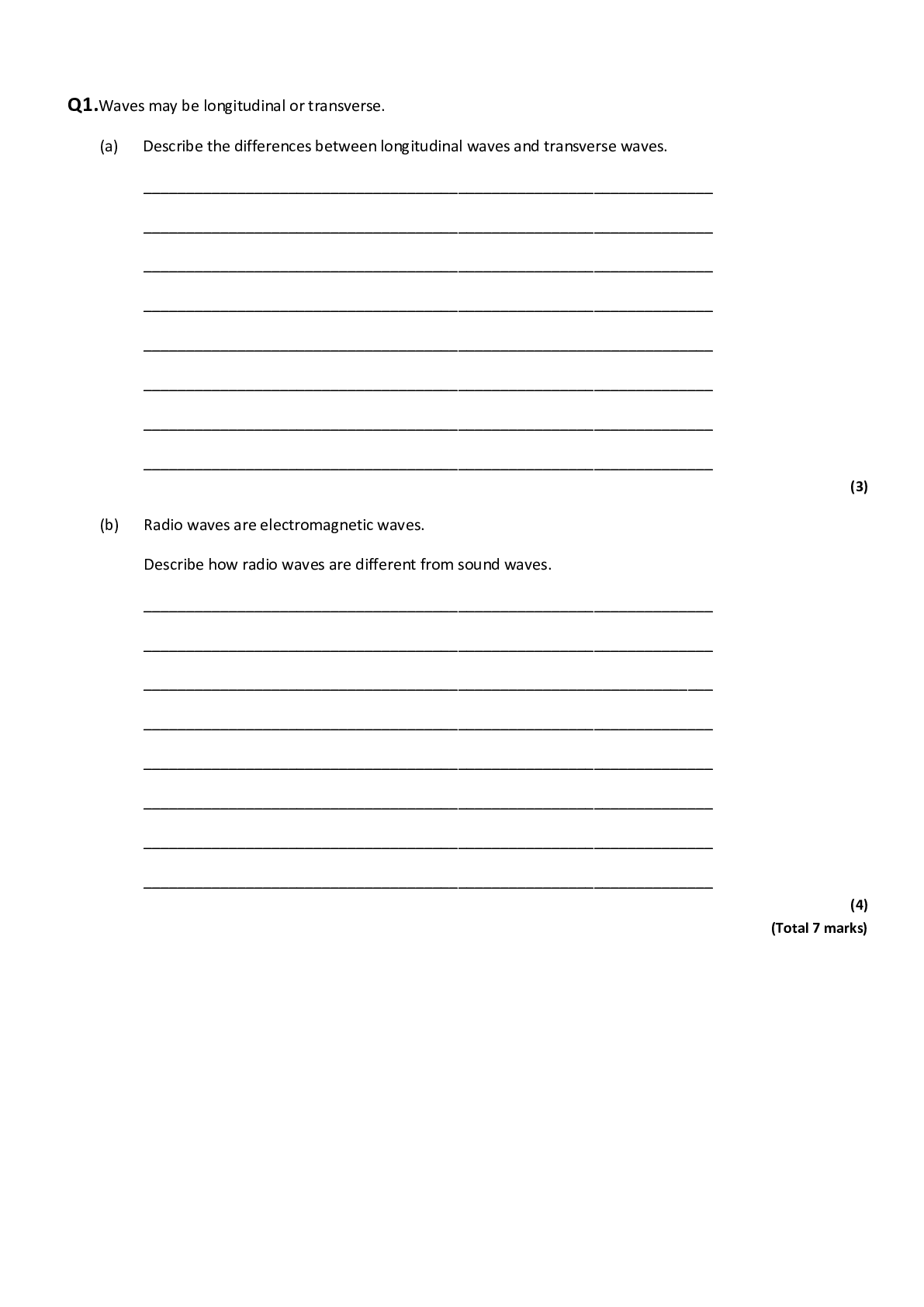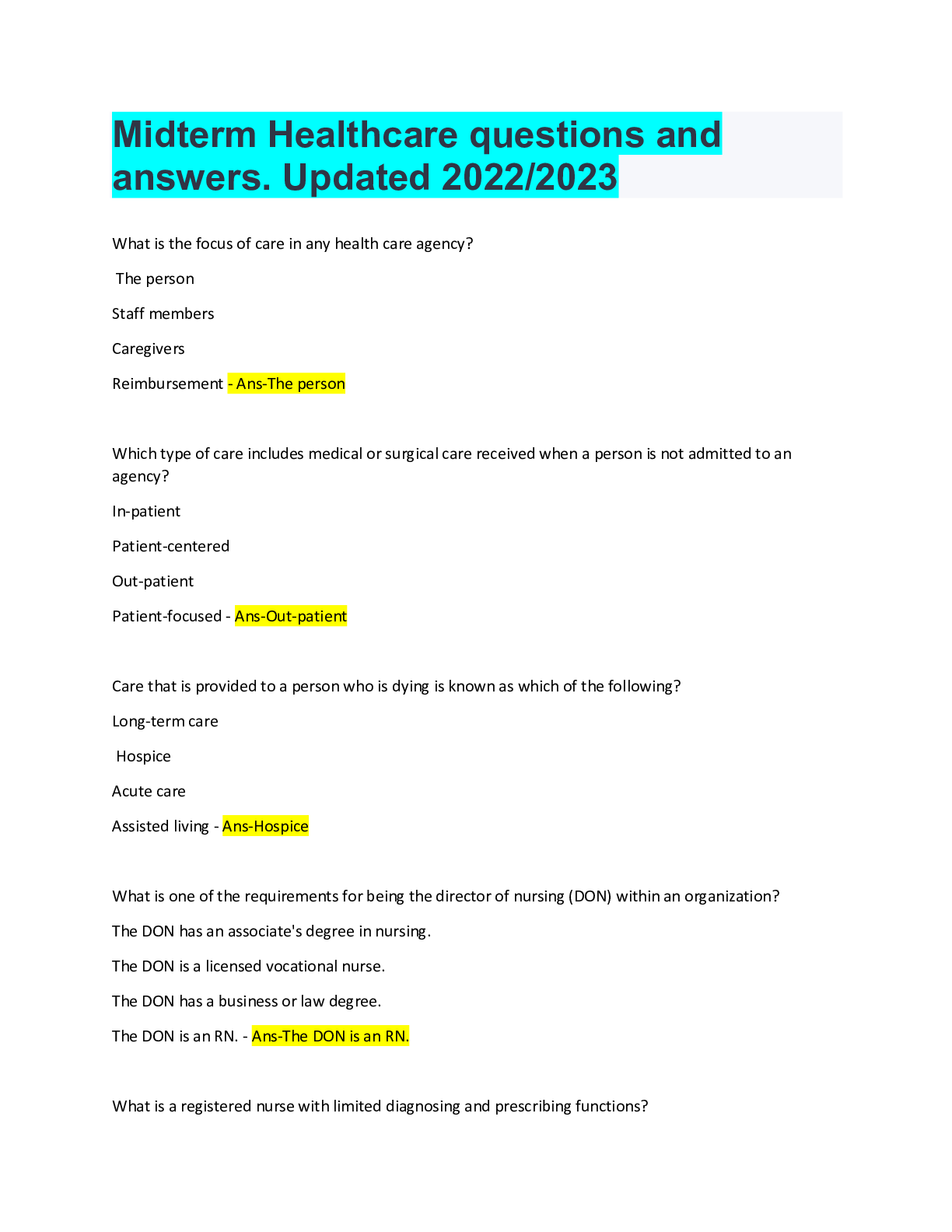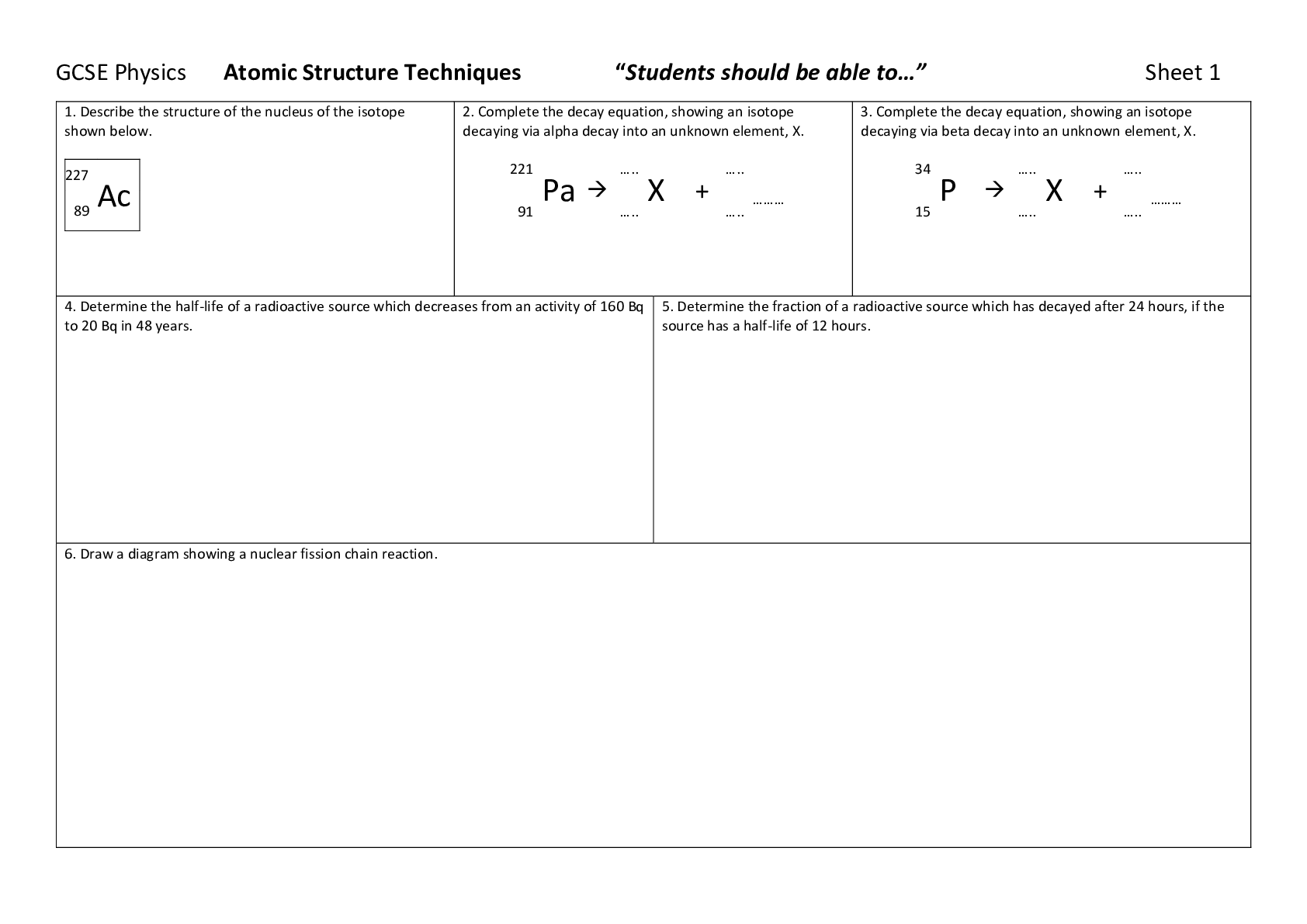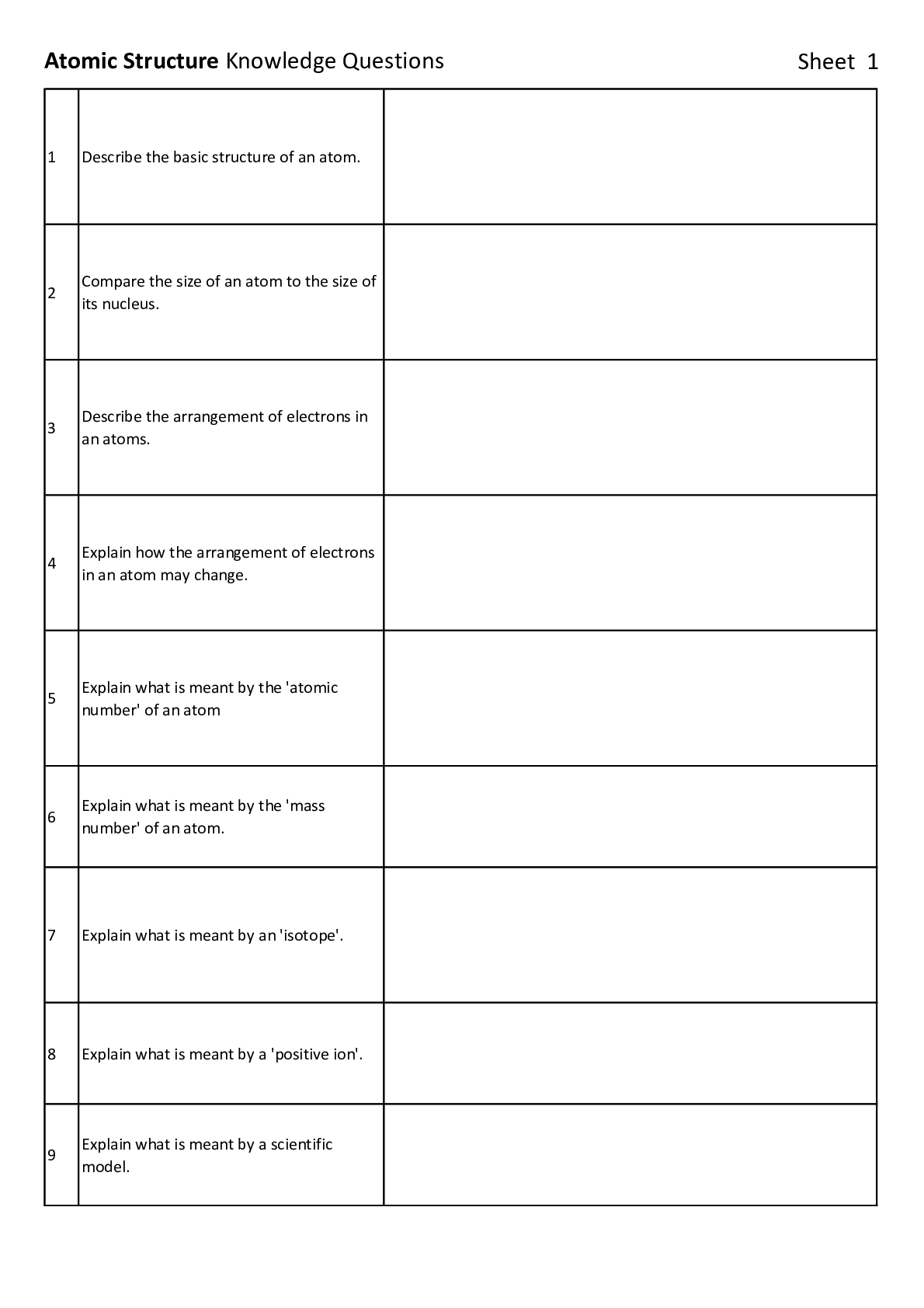Physics > QUESTION PAPER (QP) > Waves properties comprehensive revision questions and answers. Full Coverage. 100% pass rate (All)
Waves properties comprehensive revision questions and answers. Full Coverage. 100% pass rate
Document Content and Description Below
Q1.Waves may be longitudinal or transverse. (a) Describe the differences between longitudinal waves and transverse waves. ___________________________________________________________________ _______... ____________________________________________________________ ___________________________________________________________________ ___________________________________________________________________ ___________________________________________________________________ ___________________________________________________________________ ___________________________________________________________________ ___________________________________________________________________ (3) (b) Radio waves are electromagnetic waves. Describe how radio waves are different from sound waves. ___________________________________________________________________ ___________________________________________________________________ ___________________________________________________________________ ___________________________________________________________________ ___________________________________________________________________ ___________________________________________________________________ ___________________________________________________________________ ___________________________________________________________________ (4) (Total 7 marks)Q2. The following figure shows the apparatus used to investigate the waves in a stretched string. The frequency of the signal generator is adjusted so that the wave shown in the figure is seen. At this frequency the string vibrates between the two positions shown in the figure. (a) The wavelength of the wave shown in the figure above was measured as 80 cm What piece of apparatus would have been suitable for measuring this wavelength? ___________________________________________________________________ (1) (b) Write down the equation which links frequency, wavelength and wave speed. ___________________________________________________________________ (1) (c) The string in the figure above vibrates at 55 Hz Calculate the wave speed of the wave shown in the figure. Use data given in the figure. ___________________________________________________________________ ___________________________________________________________________ ___________________________________________________________________ Wave speed = _________________________ m/s (3)(d) The frequency of the signal generator is increased. This makes the wavelength of the wave change. The wave speed stays the same. Describe how the apparatus could be adjusted to show one complete wave without reducing the frequency. ___________________________________________________________________ ___________________________________________________________________ ___________________________________________________________________ ___________________________________________________________________ (2) (e) A student wants to investigate how the speed of a wave on a stretched string depends on the tension in the string. The student uses the apparatus in the figure above. Describe a method the student could use for this investigation. ___________________________________________________________________ ___________________________________________________________________ ___________________________________________________________________ ___________________________________________________________________ ___________________________________________________________________ ___________________________________________________________________ ___________________________________________________________________ ___________________________________________________________________ ___________________________________________________________________ ___________________________________________________________________ ___________________________________________________________________ ___________________________________________________________________ (4) (Total 11 marks)Q3. P-waves and S-waves are two types of seismic wave caused by earthquakes. (a) Which one of the statements about P-waves and S-waves is correct? Tick one box. P-waves and S-waves are transverse. P-waves and S-waves are longitudinal. P-waves are transverse and S-waves are longitudinal. P-waves are longitudinal and S-waves are transverse. (1) Seismometers on the Earth’s surface record the vibrations caused by seismic waves. Figure 1 shows the vibration recorded by a seismometer for one P-wave. Figure 1 (b) Calculate the frequency of the P-wave shown in Figure 1. ___________________________________________________________________ ___________________________________________________________________ Frequency = _____________________ Hz (1) (c) Write down the equation which links frequency, wavelength and wave speed. ___________________________________________________________________ (1)(d) The P-wave shown in Figure 1 is travelling at 7200 m/s. Calculate the wavelength of the P-wave. ___________________________________________________________________ ___________________________________________________________________ ___________________________________________________________________ ___________________________________________________________________ Wavelength = _____________________ m (3) (e) Explain why the study of seismic waves provides evidence for the structure of the Earth’s core. ___________________________________________________________ [Show More]
Last updated: 2 years ago
Preview 1 out of 19 pages

Buy this document to get the full access instantly
Instant Download Access after purchase
Buy NowInstant download
We Accept:

Reviews( 0 )
$8.00
Can't find what you want? Try our AI powered Search
Document information
Connected school, study & course
About the document
Uploaded On
Jun 07, 2022
Number of pages
19
Written in
Seller

Reviews Received
Additional information
This document has been written for:
Uploaded
Jun 07, 2022
Downloads
0
Views
168












